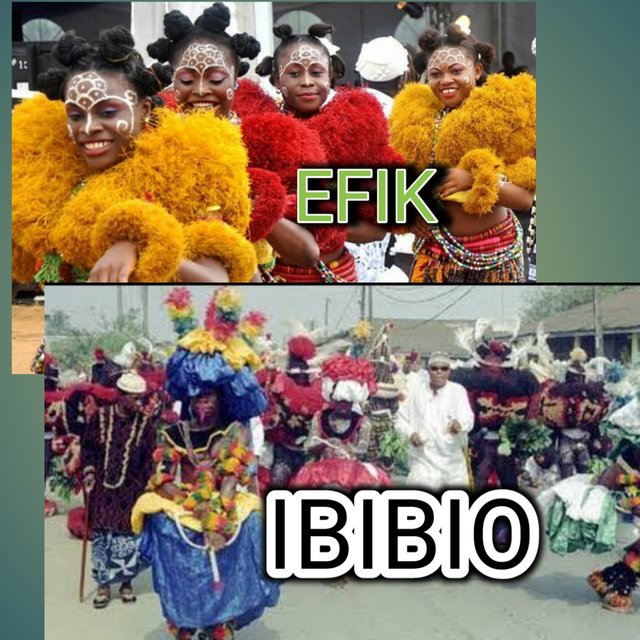Steemit Engagement Challenge Week 2 || Share your Country's Culture by @icon-monday

Hello my fellow steemians, am glad to participate in week2 engagement challenge invited by @negro-bby. Today am going to share my country (Nigeria 🇳🇬) culture, but before I proceed to the culture let's know a little about my country (Nigeria 🇳🇬).
Identification.
Although archaeological evidence indicates that communities have been living in Nigeria for more than two hundred and five years, the borders of modern Nigeria were not created until the British annexed their colonial power to the area in 1914.
Nigeria was named by the British journalist named "Flora Shaw" in 1890s. He named the area Nigeria, after the Niger River, which dominates much of the country.
Location and Geography.
Nigeria is located in West Africa, on the east coast of the Gulf of Guinea, and just north of the equator. The western border is Benin, the north is Niger and Chad, and the east is Cameroon. Nigeria covers an area of about 356,669 square miles (923,768 square kilometers).
Demographics.
Nigeria has more populations than any other African country. As of July 2000, the population of Nigeria was estimated at more than 123 million. About 345 people per square mile [345 sq km], and it is the most populous country in Africa. About one in six Africans is Nigerian. Despite the AIDS epidemic, the Nigerian population continues to grow by about 2.6 percent each year. The Nigerian population is very small. About 45 percent of its population is under the age of fourteen.
The cultural diversity of Nigeria is amazingly diverse. Anyone who is a little familiar with Nigeria knows that there are different nationalities and cultures in the country.
Let me talk about the Efik/Ibibio Culture

Image combine with Pixellap
Efik, people living in the lower Cross River state of Cross River, Nigeria. Their language is the main vernacular and the language of the Efik-Ibibio branch of the Benue-Congo branch of the Niger-Congo languages. It is widely spoken as a multilingual language in the Cross River region. The Efiks, culturally and linguistically related to the Ibibio, migrated to Cross River during the first half of the 17th century (although the date of that migration was opposed by others) and established Creek Town, Duke City, and other settlements.
Due to the European error of confusing their territory with that of Kalabari Ijo (known as New Calabar), the Efik area became known as Old Calabar (see Calabar). Originally a fishing community, Old Calabar developed into a major trading center from the 17th to the 19th century, exporting slaves and later palm oil for the restoration of European goods. European ships were required to pay a tax (comey) to the Efik authorities for the right to trade.
During the 20th century, most of the Efik people migrated from the cities to the agricultural areas of the forest. The main foods are yam and cassava, with the addition of taro, maize (corn), fruits and vegetables and fish.
The Culture
The obong, or chief, chosen among the heads of various Houses, traditionally exercised his authority as head of the Ekpe (Egbo), or Tiger, community. In addition to the tradition of reconciling forest spirits to ensure the well-being of the community, this secret male society made and imposed laws with fines, the death penalty, or boycotts; cases judged; to maintain inner peace; and served as the supreme administrative government of the Efik community. Ekpe is made up of the leading men in the community, and its upper classes are open only to those who could afford a heavy entry fee. It also served as a force for national unity, as community members from one district were welcomed by members from another region. Ekpe continues to exist, but its major role in legal, judicial, and economic affairs has been taken over by the state. Its supernatural power has been lost.
The traditional Efik religion included belief in a supreme creator, an ancestor, and a supernatural being, magic, sorcery, and witchcraft. However, the publication (1868) of the Efik language — the first translation of the Bible into Nigerian language — had a profound effect, and by the 21st century, most Efiks were professing to be Christian.

Source
Ekpe (English "Lion")
Efik/Ibibio goes hand in hand with the lion that is the symbol of this tradition. There is a secret society, called Ekpe (translated into English as “Lion”) that protects the culture. The community elaborated on a sign system called Nsibidi. The program was passed on to the ancient knowledge of the present generation, and many symbols are also taught in school to children. The people of the Efik-Ibibio culture eat dishes such as Afañg soup, Edikang Ikong soup, pepper soup, Ukwoho, Atama, Eritan, etc. Many recipes are made with vegetables. Such a choice is defined by the local environment of the culture.
How is Ekpe Culture Celebrated
The Ekpe festival has been around for thousands of years and includes many types of Ekpe masquerades performing various forms of traditional dance.
When a man and a woman (old and young) wear their traditional costume, the man has to tie a piece of George (soap) to make a traditional costume.
The boys, who started at Ekpe candy, and have a knack for playing traditional music, show off their skills in their traditional dance music.

See you in my another blog
I also use this opportunity to invite @mesola, @weasel and @hamzayousafzai to participate in the contest. Contest Link
.jpeg)
You did So well by Sharing you country culture with us, Nigeria is blessed with different culture, so numerous to mention, just like the ekpe you just mentioned
THnks for stopping by
It's incredible how people on Nigeria are still keeping their traditions despite the big influence they had once in the past during the colonial era from England. I know how rich are several habits that are very strong as cultural facts in their daily lives.